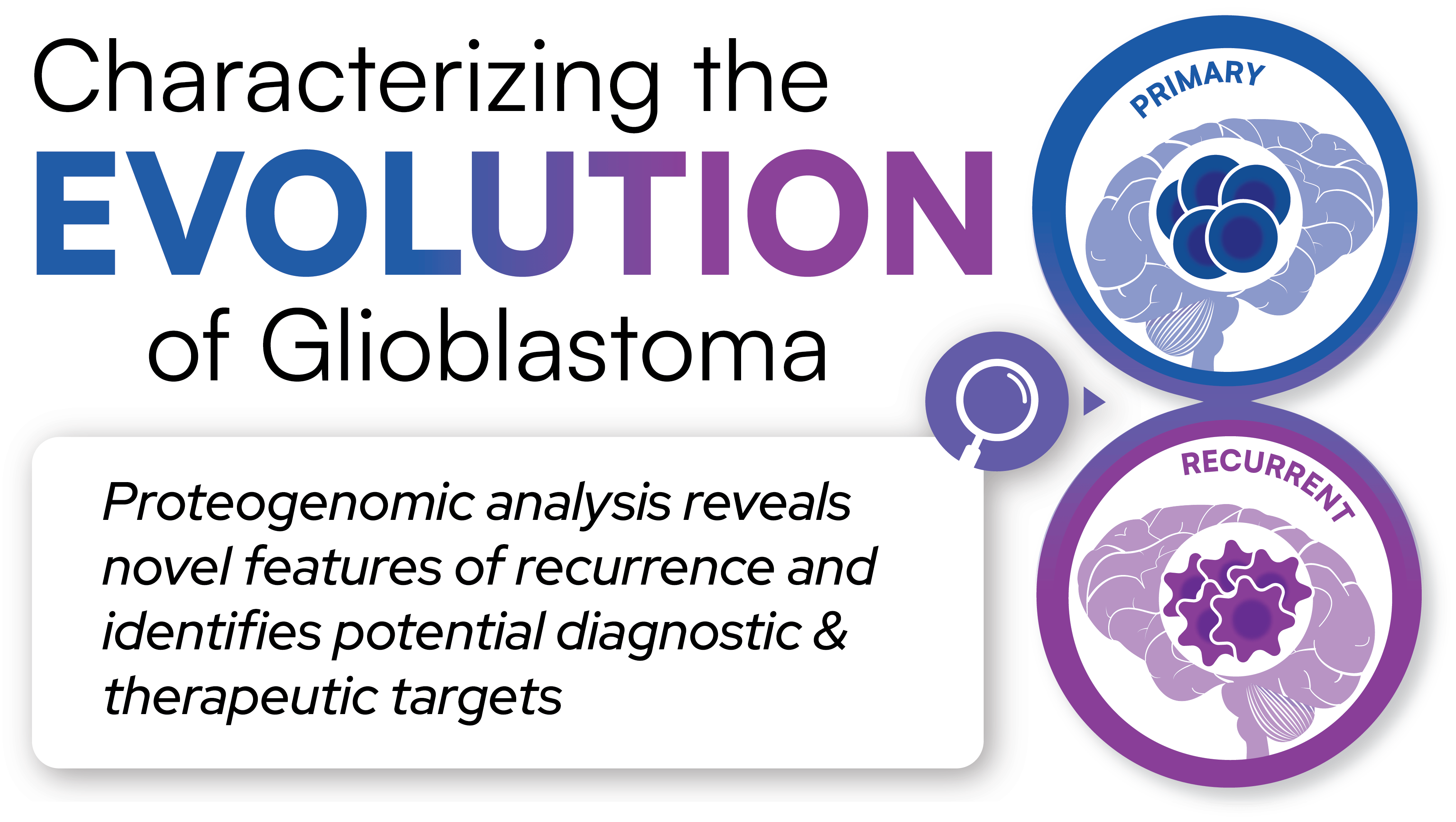Glioblastoma (GBM) is an aggressive brain tumor with poor prognosis despite advancements in treatment and diagnosis. Tumor recurrence, developing in most patients (>90%), poses a major challenge due to tumor heterogeneity and limited understanding of post-treatment evolution. Previous studies have tracked GBM evolution over time but failed to fully explain how resistance to therapy arises. To investigate this, a team from the International Cancer Proteogenome Consortium (ICPC) at the National Cancer Center of Korea (NCC-K), led by Jong Bae Park, generated and analyzed genomic and proteomic (proteogenomic) data from 123 paired primary and recurrent GBM samples. By integrating these data, researchers observed novel features of GBM biology. Their findings, published in Cancer Cell, offer valuable insights into potential targets for both diagnostic and therapeutic options for patients with recurrent GBM.
The team found that proteomics and  phosphoproteomics data provided additional insight into the evolutionary trajectory of GBM. Specifically, although some genomic alterations remained consistent from diagnosis to recurrence, proteomics and phosphoproteomics data revealed functional differences at recurrence that pointed to signaling pathways being affected independent of driver gene status. These findings emphasize the limitations of relying on genomics alone to predict post-treatment evolution in GBM. Recurrent tumors exhibited loss of cell cycle activities and DNA damage/repair functions accompanied by the acquisition of neuronal and synaptic functions, which the team hypothesized could represent drivers of recurrence and potential biomarkers for targeted therapy.
phosphoproteomics data provided additional insight into the evolutionary trajectory of GBM. Specifically, although some genomic alterations remained consistent from diagnosis to recurrence, proteomics and phosphoproteomics data revealed functional differences at recurrence that pointed to signaling pathways being affected independent of driver gene status. These findings emphasize the limitations of relying on genomics alone to predict post-treatment evolution in GBM. Recurrent tumors exhibited loss of cell cycle activities and DNA damage/repair functions accompanied by the acquisition of neuronal and synaptic functions, which the team hypothesized could represent drivers of recurrence and potential biomarkers for targeted therapy.
Mechanistically, this transition was found to coincide with activation of the RAS-MAPK pathway and elevation of neurotrophic receptors. Experimental evidence suggested that BRAF kinase plays a key role in promoting a neuronal subtype switch during GBM evolution making it a potential therapeutic target. Multi-omic analysis of Patient-Derived Xenograft (PDX) models confirmed the established patterns of GBM evolution, exhibiting activation of neuronal signaling upon recurrence. Inhibition of BRAF kinase impaired progression of recurrent glioblastoma cells, namely neuronal transition and migration, and the combined treatment of PDX-bearing mice with temozolomide and a BRAF inhibitor significantly prolonged their survival.
This work was completed under the auspices of a Memorandum of Understanding between the NCC-K and the U.S. National Cancer Institute’s International Cancer Proteogenome Consortium (ICPC). ICPC encourages international cooperation among institutions and nations in proteogenomic cancer research in which proteogenomic datasets are made available to the public.

